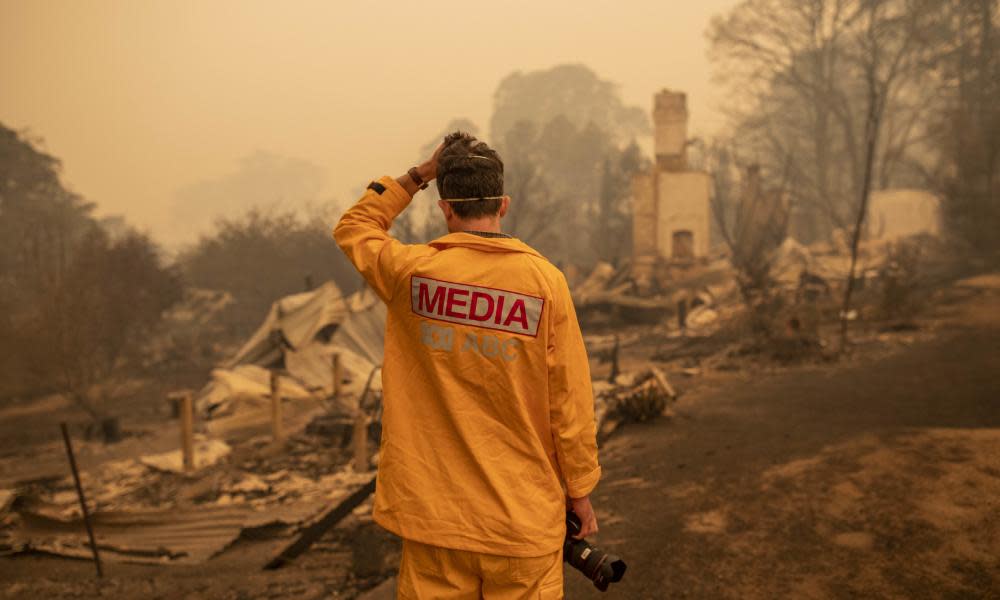Australians say ABC saved lives during summer bushfires, royal commission told

The ABC has released research underlining its role during the summer bushfires ahead of a board meeting on Wednesday to discuss the looming cuts at the national broadcaster as well as recent calls by the government for a wage freeze for ABC staff.
The independent research, based on a qualitative survey of more than 1,600 people and quantitive results from almost 400 more, found 60% of people in bushfire-affected areas said information from the ABC helped ensure their safety.
According to the research, which has been submitted to the bushfire royal commission, 81% of people were aware of the ABC as an information source and one in two used it as their main source of information during the summer crisis.
Related: ABC must freeze wages, government warns
People said they trusted the ABC’s channels and websites more than the commercial ones, and ABC local radio was essential when digital and telecommunications failed in bushfire zones.
In April the communications minister, Paul Fletcher, told the ABC he expected the organisation would defer a 2% increase for staff scheduled to take effect in October under the ABC’s enterprise agreement. ABC management cannot alter the enterprise agreement without the approval of the unions.
The ABC’s managing director, David Anderson, is preparing to deliver cuts to both content and staff to absorb cumulative budget cuts that amount to $105.9m per annum by the 2022 financial year.
The government has refused to wind back the budget shortfall despite the summer bushfires adding an extra $3m in emergency broadcasting costs to the ABC’s costs.
“Australians turn to the ABC at times of crisis and on some occasions during last summer’s bushfires the ABC was a central source for life-saving information,” Anderson said on Tuesday.
“This research confirms the ABC’s fundamentally important role in delivering those critical services to the Australian public. We are fully committed to protecting and investing in our emergency broadcasting to ensure we continue to deliver a service of the highest quality and accessible to everyone.”
Guardian Australia understands one of the areas of the ABC under scrutiny at the board meeting is the lifestyle division, ABC Life, which internal and external critics say is non-essential when funds are scarce for hard news coverage.
ABC Life costs $3m a year and its staff represent 0.5% of staff compared with 6.6% of ABC staff working on its capital city radio network and 12.6% of staff across its regional and rural operations, Senate estimates has heard.
Anderson has told the government the cost of emergency broadcasting will be $5m every year if the summer bushfires are the “new normal”.
In the first two weeks of 2020, ABC Sydney and ABC NSW local radio produced 296 hours of rolling fire coverage, ABC Gippsland 134 hours and ABC Melbourne 83 hours.
Over that same period, the ABC undertook emergency broadcasting for more than 200 emergency events across the country.
According to the research, ABC News Online was the most trusted news website, while the ABC was the most used broadcast channel during the bushfire crisis.
The ABC’s Emergency website was the ABC’s most trusted platform (74% trusting it “greatly”) along with ABC Local Radio (72%) and ABC News TV (71%).
However, there were areas the ABC could improve, namely in awareness of the dedicated emergency platforms.
Last month Guardian Australia revealed the ABC has lost $783m in funding since the Coalition government came to power in 2014.

 Yahoo News
Yahoo News 
